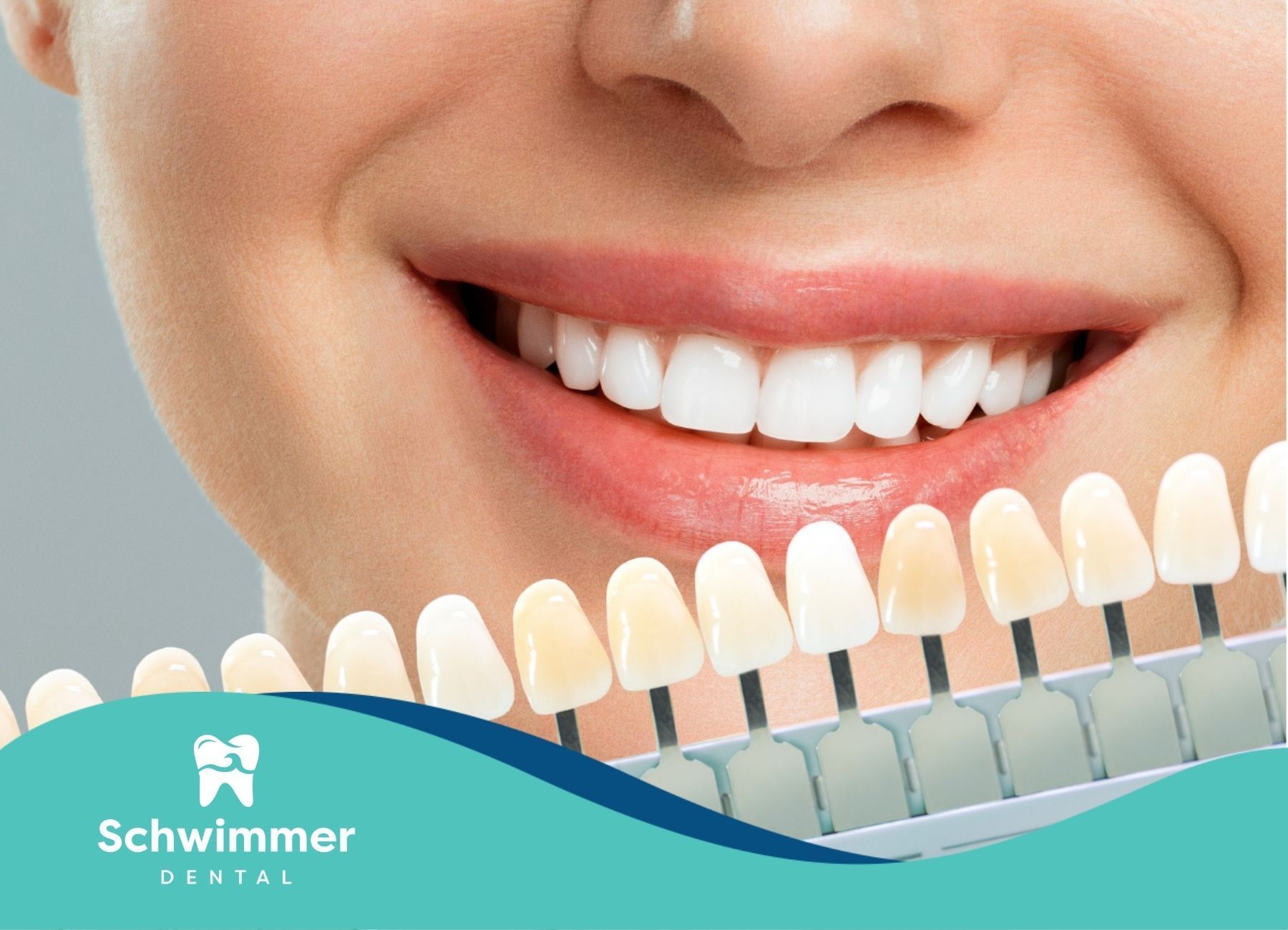Recognizing Dental Implant Infection Symptoms
Understanding Dental Implant Complications
Causes of Infection
Peri-implantitis is one of those unpleasant infections that like to crash the dental party, settling around an implant. Here’s what often sets it off:
- Lighting up a cigarette
- Slacking on brushing and flossing
- Having diabetes
- An immune system not running at full throttle
- An off-kilter bite
- Grinding away at those teeth (known as bruxism)
- Allergy to the implant parts
Keeping your mouth clean and addressing these issues can really lower your chances of facing an infection radar.
Consequences of Untreated Infections
Ignoring an infected dental implant is like ignoring a car's check engine light. It can snowball into:
- Losing bone where your implant should sit tight
- Infection spreading beyond borders
- The implant calling it quits
These issues hammer home why catching an infection early is golden. For more on this, hop over to our guide on dental implant bone loss.
Diagnosis and Evaluation
Spotting peri-implantitis on time is the real game-changer. Dentists play detective using a mix of clinical checking and radiography to scope out how your implant is holding up. The process is usually swift and no biggie, ensuring any potential issues are caught quickly and solutions are rolled out fast.
Getting wise to symptoms early can save you a heap of trouble. For tips on spotting trouble before it amps up, pop by our section on dental implant failure signs.
Symptoms of Dental Implant Infections
Spotting the warning signs of a dental implant infection is super important. Quick action can keep your mouth happy and healthy. Here's what to watch out for:
Pain and Swelling
Feeling a bit achy near that implant? It could be more than just a minor issue. From a dull, nagging pain to that throbbing sensation that won’t quit, these can be early hints of trouble. Swelling’s another red flag. If your gums or nearby areas puff up, it might be bacteria causing mischief.
Bleeding and Pus Formation
Bleeding gums around the implant? Not a good look. When bleeding sticks around or keeps coming back, it’s time to pay attention. Pus is like your body’s SOS call. It might taste funky or smell bad, letting you know an infection’s brewing.
| Symptom | Description |
|---|---|
| Pain | From a nagging ache to pulsating pain |
| Swelling | Gums or nearby areas might puff up |
| Bleeding | Keeps happening near the implant |
| Pus Formation | Has a funky taste and odor |
Gum Redness
If your gums start looking angrier than usual, turning red and feeling sore, it’s another sign you shouldn’t ignore. It’s your mouth’s way of saying, “Hey, something’s not right here!” Ignore it, and you could be looking at bigger issues like bone loss or even losing the implant.
Catching these dental implant infection signs early can pave the way for quicker treatment. Keeping up with regular dentist visits and a solid tooth-brushing routine helps fend off these pesky problems. Need more deets? Check out our page on allergic reactions to dental implants.
Preventative Measures
Keeping those chompers of yours in tip-top shape after getting dental implants isn't just a good idea—it's your ticket to a hassle-free smile. Let's chat about some straightforward ways to keep your gums in the clear and dodge dental implant troubles. Knowing how to spot dental implant infection symptoms can really save your hide.
Importance of Oral Hygiene
Want those implants to stick around without any drama? Tidy teeth are where it's at. Here's the lowdown on keeping your mouth squeaky clean.
- Brushing: Make friends with your
toothbrush twice a day. A soft-bristle kind with dentist-approved paste is your best bud.
- Flossing: Get in there with some floss daily to scoop out any gunk hiding between your teeth and around those implants.
- Rinsing: Swirl around some dentist-favored mouth rinse or good ol' saltwater to keep the pesky bacteria at bay.
- Skip the Cigs: Smoking is a no-go. It invites bacteria to crash the party in your mouth and slows down healing.
Avoiding Contributing Factors
A few things can make dental implant infections more likely. Let's steer clear of these pitfalls.
- Diet: Go easy on the sweet stuff while healing to keep bacteria from throwing a sugar-fueled fiesta.
- Stay Hydrated: Drink up, because a dry mouth is bad news for oral health.
- Dental Visits: Keep up with your regular dentist appointments. They're like wellness checks for your mouth.
Early Detection and Treatment
Catching an infection early is like putting out a tiny fire before it turns into a blaze. Know the signs, and don't dawdle if something seems off.
- Act Quickly: Spot any pain, swelling, or redness? It's dentist time, ASAP.
- Routine Check-ups: Regular dentist drop-ins help catch sneaky inflammation or infection signals early).
| Symptom | What You Should Do |
|---|---|
| Pain and Swelling | Get a dental check right away |
| Bleeding and Pus Formation | Book an urgent dentist visit |
| Gum Redness | Have the dentist take a peek |
Staying on top of your dental care can give your implants a nice long life and keep that smile groovy.
Treatment Options for Infected Dental Implants
Got trouble with dental implants acting up? Don't worry, there's hope! Here's a breakdown of ways to tackle those pesky infections around your dental implants.
Antibiotics
Think of
antibiotics like your initial go-to for dealing with infection blues. They're great at fighting off the bad bugs making your mouth miserable and can ease inflammation and pain. If you're having a rough time yet your symptoms aren't too wild, pairing antibiotics with solid oral hygiene might be just what the doc ordered.
| If It's Like This | Consider Doing This |
|---|---|
| Slightly Bugging You | Pop Some Antibiotics |
| A Bit of a Nuisance | Step Up Tooth Brushing & Antibiotics |
| Really a Pain | More Pills & Maybe More |
Surgical Interventions
When things aren't getting any better, it's time to bring in the heavy artillery. Severe cases might need a hands-on approach like surgery. This could mean taking out the implant if the infection's really bad.
Sometimes, cleaning things up with mechanical tools can also help get rid of the nastiness and clean things up nicely.
| What You Got | What to Do |
|---|---|
| Major Trouble | Time to Remove that Implant |
| Just in One Spot | Clean Up with Tools |
| Deep-Rooted Issues | Go for Surgical Cleanup |
Laser Therapy
Lasers aren't just for sci-fi flicks—their precision in targeting bacteria makes them a great option here. Lasers clean the implant surfaces without going overboard, so you're healing quicker and swelling less. By focusing only on the troublemakers, they help keep all the good bits of your gums safe.
| What's Done | Why It's Great |
|---|---|
| Spot-On Cleaning | Zeroes in on Bacteria |
| Gums Intact | Less Swelling |
| Heals Faster | Easy on the Mouth |
Bring a combo of these treatments into play, and you'll be closer to a full recovery and keeping things drama-free in the dental department. Keep a regular date with your dentist, and keep an eye on any weird symptoms.
Need more info? If something feels seriously off, booking it to your dentist is the best move. Dive deeper into what's up with nasty nerve surprises if you're curious.
Expert Advice and Services
Schwimmer Dental Know-How
Schwimmer Dental in Point Pleasant Beach, NJ has got it down when it comes to handling dental implant infections, covering everything from minor to major. Whether a simple fix with some antibiotics or a heavier duty approach, their team’s got the skills to sort it out. If it’s a big hassle, sometimes the implant needs to be taken out to fix things up. For anyone with dental worries, their expertise is a reliable choice.
Regular Check-ups
Seeing your dentist now and then? That's your best shot at staying ahead of any implant troubles. Skilled dentists, like those at Schwimmer Dental, can spot when your gums start acting up and nip it in the bud to keep any bigger problems away. Making it a habit to keep those dental appointments means catching stuff early and stopping issues from getting out of hand.
| Check-up Schedule | Why It Matters |
|---|---|
| Twice a Year | Keeps your mouth in check, helps find issues early |
| Every Three Months | Best for folks with past dental troubles or ongoing problems |
On-the-Spot Dental Help
If a dental issue blows up out of nowhere, quick action is key. Schwimmer Dental is all geared up to tackle dental emergencies quickly, dealing with things like pain and swelling really fast. They make sure urgent cases are a top priority, so you're not left hanging with a sore mouth. They know what they’re doing, and they do it fast, to get you the relief you need stat.
Caught early, treated right – that's how you keep your smile in shape. And steer clear of smokes around implant surgery time, it's a slow down on healing and invites trouble. So, stick to regular dental check-ins and do everything you can to dodge the serious stuff.
Impact of Dental Anxiety
Dental anxiety can really mess with your plans if you're thinking about getting dental implants. It's not just a place holder either—both individuals and dental folks need to know just how much it matters.
Stats and Facts About Dental Anxiety
You'd be surprised how many folks freak out at the thought of the dentist. Studies show:
- 36% of Americans feel uneasy about dental visits.
- 12% are downright terrified, to the point of avoiding the dentist.
| Anxiety Level | Population Percentage |
|---|---|
| General Anxiety | 36% |
| Extreme Fear | 12% |
And that fear can mean skipping those regular check-ups, leaving problems like infections untreated.
Getting Past the Fear of Check-ups
Getting over dental jitters is key if you wanna keep your chompers healthy and avoid issues like dental implant infection symptoms. Here's some tricks to chill out a bit:
Talk It Out
- Tell your dentist what’s bugging you.
- Get the 411 on procedures so you’re not left in the dark.
Chill Out
- Try deep breaths to calm those nerves.
- Imagine relaxing places that put you at ease.
Ease In
- Start with an easy-peasy check-up or cleaning.
- Move on to more challenging stuff once you're good and ready.
Keeping Trouble at Bay
Want to dodge dental implant hassles? Regular visits and early catches are your friend. Here’s how to make anxiety a non-issue:
- Get Support: Dentists can be like caring buddies when trained properly. They should listen, understand, and keep things comfy.
- Learn the Facts: Knowing what’s up with dental care and why ignoring stuff like infections is a bad idea means everything. This keeps worries in check about things like dental implant nerve damage or dental implant bone loss.
- Tech to the Rescue: Tools like sedation or even VR can make dental visits a breeze, taking the edge off the fear.
When anxiety is handled well, people don’t skip out on appointments. And that keeps their teeth, implants, and that famous smile of theirs in top shape.
SOURCES:
https://www.biolase.com/blog/signs-infected-dental-implant/
https://pubmed.ncbi.nlm.nih.gov/29926957/
https://pmc.ncbi.nlm.nih.gov/articles/PMC10146405/
https://www.medicalnewstoday.com/articles/what-to-know-about-dental-anxiety
https://www.colgate.com/en-in/oral-health/brushing-and-flossing/why-brush-your-teeth-twice-a-day



